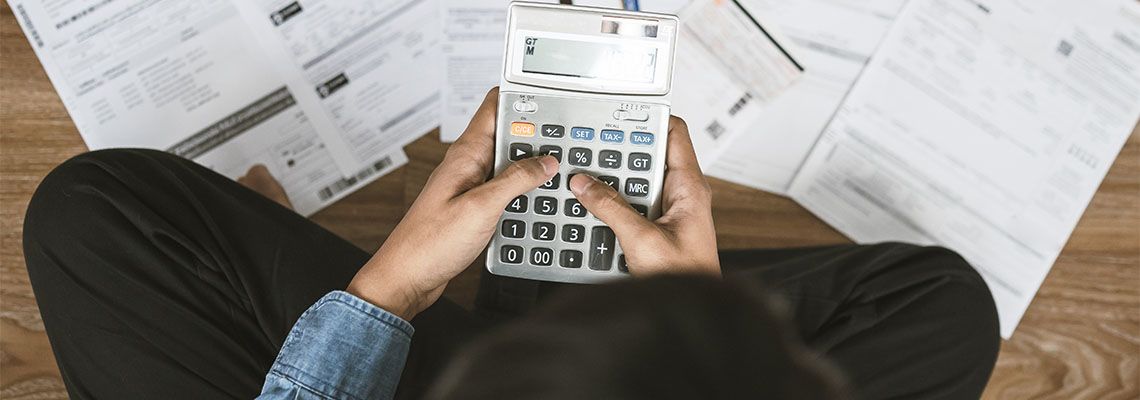
Are Heirs Responsible for Their Loved-One’s Debts?
The death of a loved one is difficult enough to process without having to worry about any debts that the deceased may have incurred. Unfortunately, it is not uncommon for family members to be left with the responsibility of dealing with their late relative’s debt. So, what are the legalities surrounding debt after someone passes away?
Dealing with a deceased relative’s debt can be overwhelming, but understanding your rights and obligations when it comes to handling unpaid balances can make it much easier. The estate administration attorney at the Law Office of Rodney Gould assists surviving family members in dealing with their loved one’s debts. Rodney Gould also provides legal counsel to individuals appointed as executors of someone else’s estate in Los Angeles and other parts of California, including West Hollywood, Sherman Oaks, Beverly Hills, and Studio City.
Do Debts Go Away After Passing Away?
The simple answer is no—debts do not go away after passing away. In fact, in most cases, creditors will expect full payment of the outstanding balance. That being said, there are certain exceptions where creditors may be willing to negotiate and accept partial payments. However, this will depend on the type of debt and the creditor’s policy regarding deceased account holders.
How Is the Deceased Individual’s Debt Handled During the Estate Administration?
The estate administration process involves gathering information about the deceased person’s assets, liabilities, and other financial obligations. This includes all real property, such as homes and other buildings, stocks and bonds, bank accounts, insurance policies, and any other investments or assets owned by the deceased individual. The executor of an estate must also gather information on any outstanding debts that may exist. These include credit card debt, bank loans, mortgage payments, and other unpaid bills owed by the deceased individual.
Once all of this information has been gathered and assessed, it is up to the executor of an estate to pay off any outstanding debts before distributing any remaining assets according to state laws or according to directions set forth in a will or trust document if such documents exist. If there are insufficient funds in an estate account to cover all debts owed by a deceased individual, then creditors may need to accept partial payment or take legal action against an executor if they feel they have not been treated equitably in regard to the repayment of debt.
What Are the Estate Executor’s Responsibilities During Estate Administration?
The primary responsibility of an executor during an estate administration is ensuring that all debts owed by a deceased individual are paid off before any remaining assets are distributed according to their wishes or state law. This includes locating creditors who may be owed money by a deceased person (including any creditors who have not yet filed a claim) as well as negotiating lower interest rates or payment plans with creditors if necessary.
The executor should also keep records of all communications with creditors throughout this process so that they can prove that these steps were taken in case of any legal challenges later on down the line. The executor’s duties also include finding the deceased’s will, if there is one, according to the California Courts website.
Who Is Responsible for a Deceased Relative’s Debts?
Generally speaking, the estate of the deceased person is responsible for paying off any remaining debts that were incurred before their passing. If there is not enough money in the estate to cover all debts, then payments will be made according to priority (e.g., secured loans such as mortgages would take precedence over unsecured loans such as credit cards). It is also worth noting that if multiple individuals are listed on an account, they could be held jointly liable for repayment of that debt.
What if a Debt Collector Harasses the Relative of the Deceased Debtor?
If a creditor or debt collector attempts to collect on a debt from family members who were not listed on an account, they may be violating federal law by doing so (known as “debt collection harassment”). In such cases, it is best to contact an attorney who specializes in consumer protection law, as they can help you understand your rights and protect you from illegal practices.
If you feel like you are being harassed by creditors or debt collectors in regard to your deceased relative’s debts, seek legal advice from an experienced attorney who can help protect you from illegal practices.
The Empathetic Guidance You Need
While dealing with debt after someone passes away may seem daunting at first glance, it doesn’t have to be overwhelming if you know what steps need to be taken during an estate administration process. Contact Rodney Gould to get the legal guidance you need.
